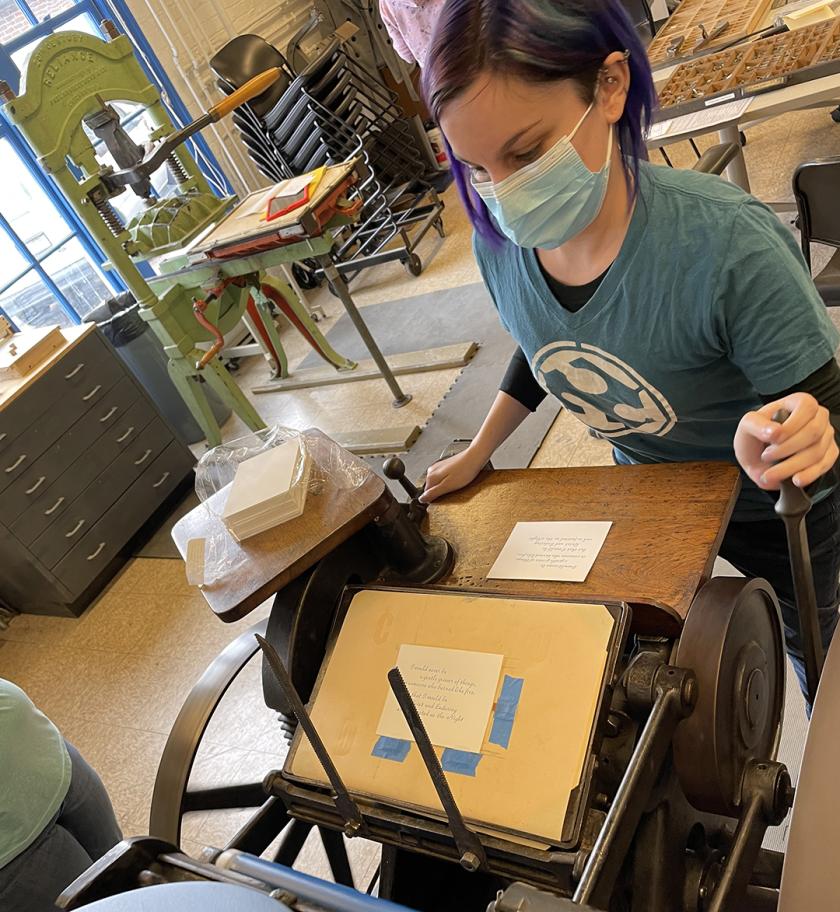The old, green hand press that used to be stationed on the first floor of the iSchool building is getting a new lease on life. It has been moved to the Champaign-Urbana Community Fab Lab, where students and community members will be using it for letterpress printing. The Washington-style hand press, which was manufactured in the late nineteenth or early twentieth century by Reliance, was used for teaching and fine printing at the University of Illinois for decades before becoming a show piece at the iSchool.
Moving the hand press to the Fab Lab so that it could be used again for printing was the brainchild of Associate Professor Ryan Cordell, whose research interests include book arts, book history, print culture, and digital humanities. The hand press is part of Cordell's book arts lab, which includes a C&P platen press from the late nineteenth century and a Vandercook model 14 proofing press from the 1940s. Cordell traveled to Wisconsin in December with Tad Schroeder, the iSchool's assistant director of facilities, and Kadin Henningsen, an English PhD student who is also a local printer, to pick up the C&P and Vandercook presses, cabinets of type, and related supplies.

"These three models will help teach three different eras of letterpress history," said Cordell. "While we can learn something about print culture by reading scholarship about it, actually working with type, ink, and paper can generate material insights that are not always apparent in more abstract discussions of the period. In addition, there are many aspects of contemporary technology that descend directly from historical ancestors."
While the Reliance press needs to be refurbished before it is operational, the other presses are already in use in Cordell's course, BookLab: Print to Programming (IS 583BL), in which students discuss a set of readings and then complete a hands-on lab in a textual technology. In the future, the presses will be used by students from a range of majors—English, literature, art, history, and more.
"Students in BookLab learned how to set type and print a basic project," said Cordell. "Most of them chose a favorite poetic stanza, song lyric, or short prose excerpt. By the end of our weeks in the press, they had printed those stanzas on paper we had made at the U of I's Fresh Press during an earlier lab."

According to Cordell, it's especially important for information science students to experience a letterpress printer in order to expand their technological imagination.
"Many of our most deeply held ideas about information organization and design came into being during the letterpress era, using letterpress technologies, and when students learn those technologies it generates both historical insight and inspires new frameworks for the future," he said. "Letterpress requires both expression and precision—it's something in between art and engineering, which fits perfectly in an interdisciplinary space like the iSchool."
Cordell looks forward to hosting classes and workshops, as well as visiting scholars and artists, and anticipates that students will begin to develop independent projects in the press as well.
